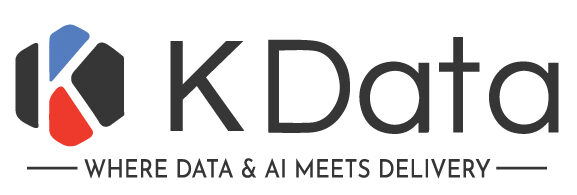
Everybody wants to know if artificial intelligence is cost-effective, since innovation is a trend in practically every industry. With its ground-breaking capabilities that significantly reduce costs and increase operational efficiency, artificial intelligence has emerged as the central component of modern business strategies. It is now more important than ever to use AI effectively in the contemporary corporate environment due to growing competition and shrinking margins. In an era where enterprises embracing technological advancements might gain a significant competitive advantage, non-agile organizations may lose out. Check out our guide on the expense of artificial intelligence to get a behind-the-scenes look.
The most effective ways to reduce costs with AI
Automating repetitive work
AI can automate repetitive tasks that most businesses spend a lot of money on. RPA and chatbots assist in automating repetitive processes so that employees can focus on higher-level thinking. This demonstrated the immediate impact AI may have on the bottom line by resulting in quicker response times and lower personnel expenses.
Enhancing decision-making
AI is capable of processing and analyzing massive amounts of data quickly. AI software compares market trends at firms like Goldman Sachs to improve investment procedures. According to a McKinsey analysis, companies that use data to inform their decisions may clearly increase productivity and profitability by 5–6%. This speaks to AI’s natural ability to lower risk and improve financial performance, particularly when markets are volatile.
Is AI cost effective: Supply chain management streamlined
Supply chain inefficiencies can seriously jeopardize profitability. Demand forecasting and inventory level optimization are two ways AI may increase supply chain capacity. Organizations like DHL utilize AI to accurately estimate demand, which lowers operating costs and improves delivery. See AI in supply chain and logistics for additional details. According to a survey by the World Economic Forum, supply chain optimization using AI could save logistics companies up to $1.5 trillion by 2025. For businesses, that means being competitive as well as saving money.
Reduction of operational and maintenance costs
AI can plan maintenance and predict equipment breakdowns, drastically reducing operating expenses. During production, Siemens employs AI-based predictive maintenance solutions to foresee technical support requirements before they result in downtime. Deloitte claims that this method can reduce maintenance costs by 10–40%. This finding provides an indisputable justification for businesses to invest in AI technology in order to improve operational reliability.
Increasing energy efficiency
AI is one method of optimizing energy expenses, which are high for the majority of businesses. It has the ability to examine usage trends and offer practical solutions for enhancing them. Google has implemented artificial intelligence (AI) in its data centers, resulting in up to 30% energy resource savings. In addition to allowing for operational cost reductions, this approach meets the increasing demands of consumers and regulations for sustainability. Stakeholders that are concerned about environmental responsibility will increasingly criticize businesses that disregard energy efficiency.
Fraud detection and risk mitigation
AI provides reliable solutions to detect and manage risk as fraud gets more sophisticated. Among the banks that use AI algorithms to track transaction flows and spot anomalies instantly is American Express. They have prevented losses of millions of dollars by taking proactive measures. Businesses who use AI for fraud detection report a 50% decrease in fraud losses, according to the Association of Certified Fraud Examiners (ACFE), demonstrating the importance of AI in protecting company assets.
AI-generated marketing cost savings
Although it is expensive, effective marketing drives company growth. AI improves marketing by developing tailored campaigns by learning from consumer data. For instance, Netflix uses AI to make personalized content recommendations to viewers, increasing audience retention and engagement. According to research, AI-driven targeted marketing can be 50% more effective than traditional methods, therefore employing data-driven marketing to optimize return on investment is desirable.
Hidden benefits: Strategic gains beyond cost
AI saves time and improves insight, enabling businesses to:
- Quickly enter new markets;
- Create new goods based on real-time consumer feedback;
- React faster to competition activity;
- Offer better user experiences;
- Increase customer loyalty through customisation
Businesses that use AI benefit from these qualities, which provide them a competitive edge and support long-term top-line revenue growth and cost reductions.
How to succeed with money-saving strategies using AI
Discovering money-saving opportunities
In order to ascertain where AI can provide efficiencies, thorough assessments must be carried out. Nearly half of business owners are using AI solutions to automate processes, according to a new poll. As the promise of AI becomes more widely recognized, businesses feel compelled to investigate how AI may specifically benefit their operations.
Ensuring high-quality and accessible data
The quality of the data has a significant impact on how well AI systems perform. To ensure that their data is accurate and available, organizations need to invest in strong data management systems. AI initiatives can be destroyed by low-quality data, which results in bad choices and unnecessary work.
Establishing scalable and AI-ready infrastructure
Businesses want scalable infrastructure that can meet growing demands in order to implement AI successfully. Companies that do not make the investment will fall behind because they will not be able to use AI to its full potential.
For AI systems to continue working well, they also need to be updated and modified from time to time. To ensure that their AI solutions continue to be useful and provide long-term benefits, organizations must put in place continuous improvement procedures. Gartner claims that companies can increase the returns on their AI investments by up to 20% if they consistently optimize their AI systems.
How Data Science UA assists companies in AI solutions adoption
Data Science UA contributes a team of multi-domain professionals, including PhDs, and more than eight years of practical expertise to the development of custom AI. We are reputable for providing useful AI solutions across industries thanks to our solid portfolio of more than 200 completed projects and in-depth knowledge of our clients’ needs. Recognizing the value of pertinent information, Data Science UA also provides corporate AI training to businesses. Our courses are intended to provide commercial and technical teams with useful knowledge for their future growth with little financial outlay.
We strive to provide high-value, low-budget projects, and we appreciate the concepts of accessibility and cost-efficiency. Our team ensures that Data Science UA services offer a value proposition for companies of all sizes seeking to increase operational productivity by maintaining transparency and putting a strong emphasis on dependability.
Conclusion
A special chance for cost savings and increased productivity is presented by the use of affordable AI into corporate operations. This study examined several ways AI cost efficiency might help businesses save money, including supply chain optimization, process automation, and better decision-making. For the best results, organizations must now concentrate on determining their potential for cost savings, guaranteeing the quality of their data, building scalable infrastructure, and consistently enhancing the performance of their AI system. By giving AI top priority, companies may set themselves up for long-term success in a highly competitive market.
